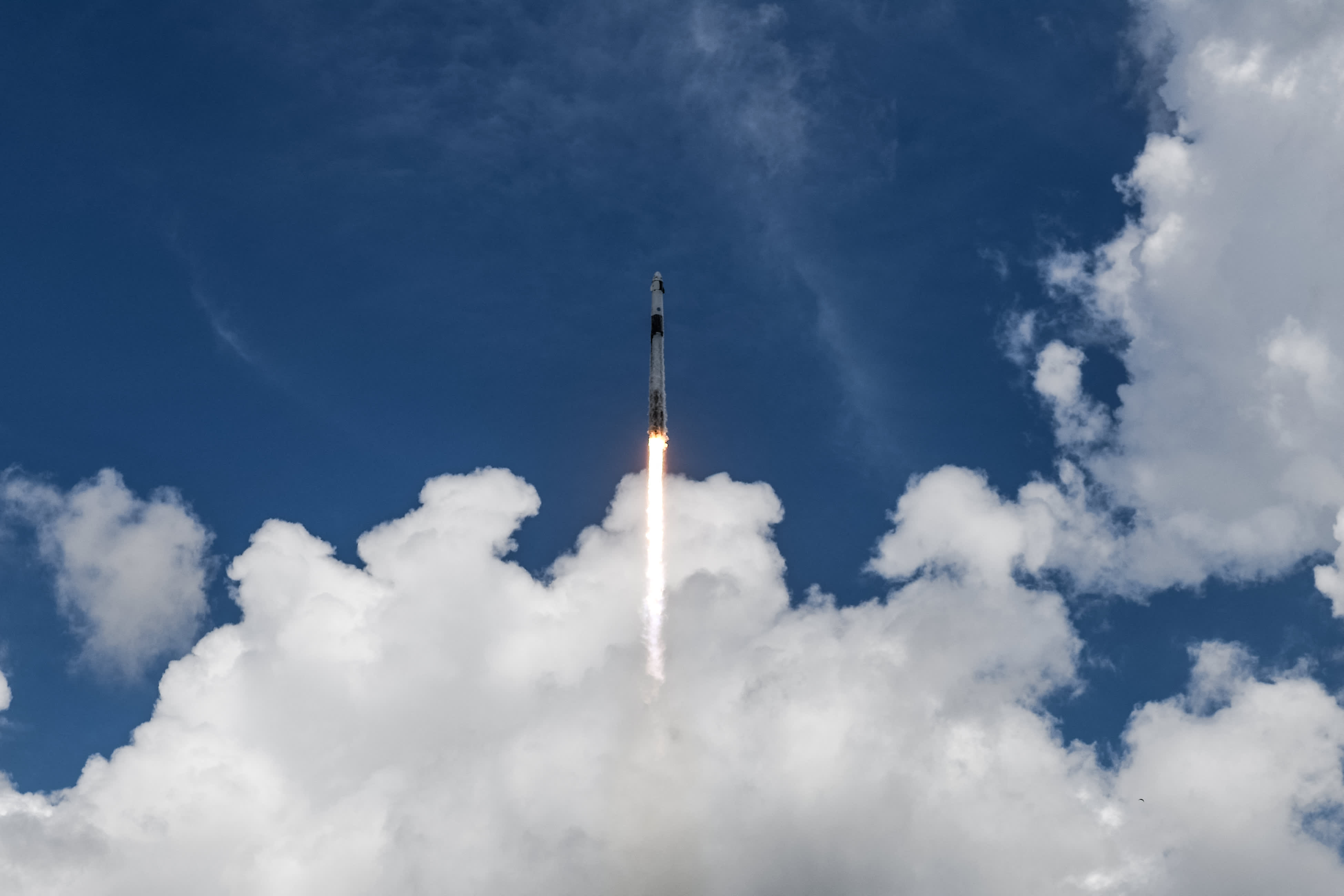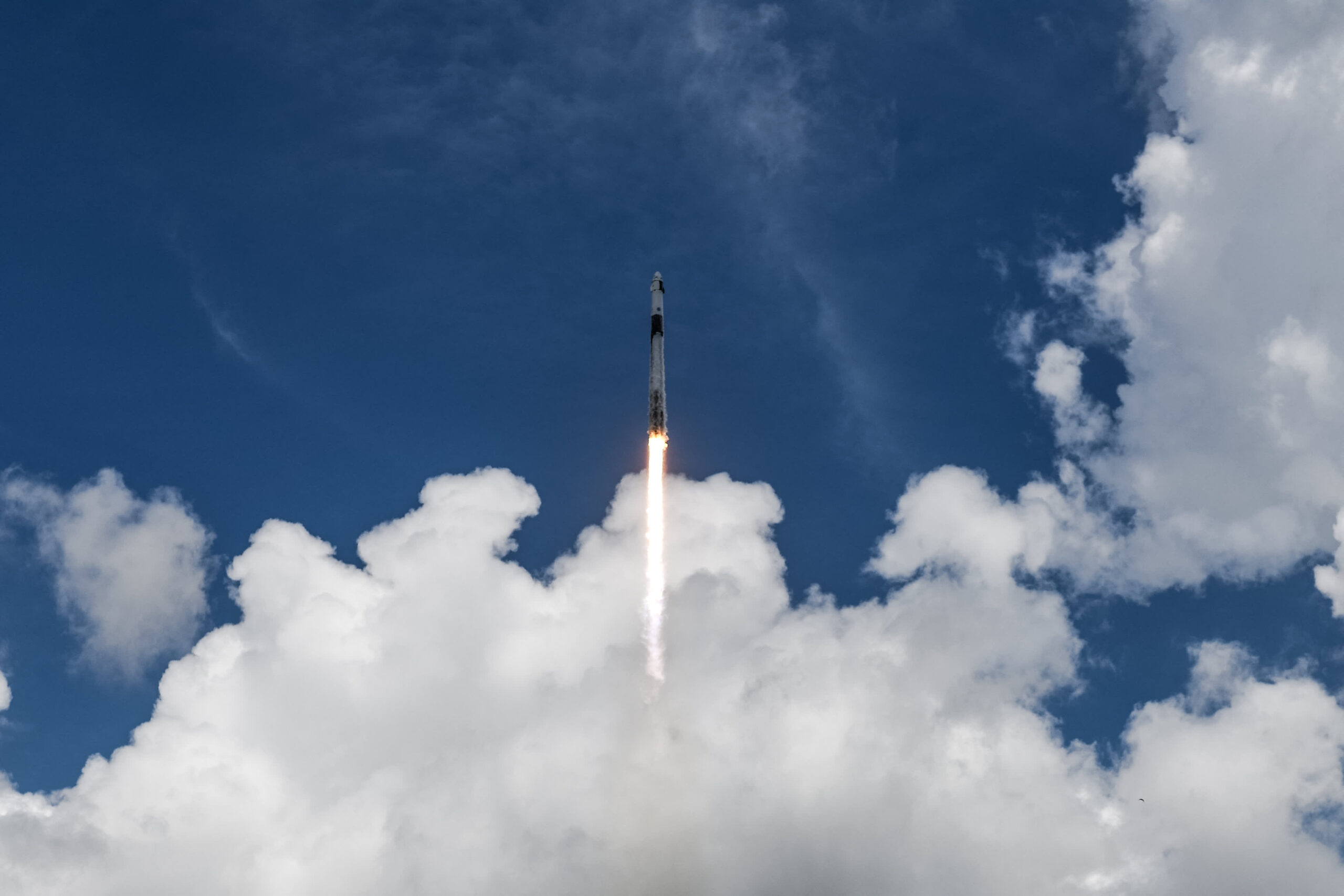
CNBC’s Investing in Space newsletter offers a view into the business of space exploration and privatization, delivered straight to your inbox. Sign up to receive future editions.
Overview: HEADLINE
It was a matter of time, with governments racing to clinch the first Mars laurels, that private companies would start offering rides to the red planet.
Italy’s Agenzia Spaziale Italiana (ASI) became the first client who’s signed on to send scientific experiments aboard SpaceX’s first commercial flights to Mars — where Elon Musk’s space company has yet to land.
“Italy is going to Mars!” ASI President Teodoro Valente announced on social media, with Italian news outlet ANSA reporting the agency’s payloads will feature a plant growth experiment, a weather surveillance station and a radiation sensor for data collection.
“#MadeinItaly on #Mars,” Italian Industry Minister Adolfo Urso celebrated, while SpaceX President and COO Gwynne Shotwell declared open season for the company’s Mars launch bookings.
“Get on board! We are going to Mars! SpaceX is now offering Starship services to the red planet,” she said on the X social media platform.
Notably, no timeline was given for the launch dates of these flights — with the odds of short-term travel to Mars increasingly under question.
Both parties to the arrangement have been committed to Mars ventures.
ASI barely just made headlines at the end of last month, when it inked a deal to develop the first human lunar outpost with Thales Alenia Space — building on the Italian space agency’s 2020 partnership with NASA to coordinate bringing astronauts back to the Moon under the Artemis Accords. Coming in third after France and Germany, Italy contributed 800 million euros ($935 million) — or 15.8% – to the European Space Agency’s 7.68 billion euro adopted budget for 2025. It’s also been heavily involved in the ExoMars mission, which seeks to launch the Rosalind Franklin rover around 2028.
It’s meanwhile at once surprising and predictable that SpaceX, which made a name for itself out of commercializing space launches, is already leaping to book Mars excursions. A longtime NASA contractor, the firm’s also been offering satellite launch services to Eutelsat’s OneWeb and AST SpaceMobile.
A few days back, Amazon, whose chief Jeff Bezos owns his own rival rocket company Blue Origin, tapped Musk’s company for the second time and launched its fourth batch of Kuiper satellites on SpaceX’s 100th mission this year. And Musk has certainly been vocal about his plans to pursue Mars colonization, once echoed by U.S. President Donald Trump’s administration.
But there’s no escaping one (nearly 400-feet) problem. SpaceX’s reusable mammoth rocket Starship — the key to materializing Musk’s Mars ambitions — has had a long-storied string of publicized test flight failures this year amid technical and refueling woes. We’re about to see during its next attempt later this month if it’s overcome these challenges in the three months since its last explosive stint. That’s skipping over a June incident when a Starship rocket exploded while being loaded with methane and liquid oxygen propellant ahead of its launch — due, Musk later said, citing preliminary data, to problems in the payload bay.
Critically for our conversation, Starship is not yet rated crew-ready, and Musk himself has now pushed back his initial targets, flagging a “slight change” of a crewed flight during the next window in 2026, when Earth and the red planet are optimally aligned for travel to Mars.
“Slight chance of Starship flight to Mars crewed by Optimus in Nov/Dec next year. A lot needs to go right for that,” he said last week on social media.
“More likely, first flight without humans in ~3.5 years, next flight ~5.5 years with humans. Mars city self-sustaining in 20 to 30 years.”
It may seem too early to start selling tickets to Mars, it’s no secret that launch capacity worldwide has been struggling to keep up with demand for space access. Time will tell whether ASI’s enthusiasm was ultimately strategic or premature.
What’s up
The space law take on NASA’s plans for a lunar nuclear reactor — A lawyer reviews the legal backdrop of NASA’s next steps to set up a nuclear reactor on the Moon to power satellites and equipment for Mars exploration. — The Conversation
Apollo 13 commander dies at 97 — Astronaut Jim Lovell, who commanded the Apollo 13 mission to the Moon and undertook four spaceflights, has passed away. — NBC News
What would outer space sound like? — Some scientists have been equating some of the faint sounds in space into rumblings discernible by humans, looking to “sonify” space. — Live Science
NASA launches next round of LunaRecycle Challenge — NASA has kicked off phase 2 of the LunaRecycle Challenge asking firms to create recycling systems to convert deep-space mission waste into fabrics, plastics, foam and metals. Submissions are due in January 2026. — Space Daily
Industry maneuvers
The return of space insurers — Space insurers are making their way back to the industry, after getting burned on substantial losses years prior. — Space News
Data centers set sights on space – Rising data traffic demand and climate risks have compelled tech giants to look skyward for orbital and lunar data server sites. – Sify.com
U.S. to tout new rocket artillery system — The U.S. is set to welcome the new Global Mobile Artillery Rocket System, which completed its initial test firing in New Mexico last week and has a shoot-and-scoot capability allowing it to fire and depart. — The National Interest
China unveils rocket recovery ship — Beijing has launched its first ship that will recover reusable rockets, the Xingji Guihang (“Interstellar Return”) developed by Chinese private firm iSpace. — South China Morning Post
Market movers
United Launch Alliance CEO outlines plans to reuse tech — United Launch Alliance’s Tory Bruno said test flights with the SMART Reuse system aimed at recovering and reusing booster components could begin as early as 2026. — NASA Spaceflight
Why does Amazon keep contracting SpaceX launches? — SpaceX’s 100th launch of the year carried satellites for Amazon, raising the question of why Jeff Bezos, owner of rocket company Blue Origin, is still employing his rival’s services. Ars Technica takes a look. — Ars Technica
Northrop Grumman, U.S. Space Force integrate antennas in DARC test — Northrop Grumman and the United States Space Force succeeded to integrate several antennas at the Deep-Space Advanced Radar Capability (DARC) Site 1 for satellite multiple satellites. — Defence Industry Europe
Ariane 6 takes off with climate monitoring satellite — Europe’s Ariane 6 rocket undertook its third launch, this time to deliver a weather forecasting and climate monitoring satellite. The rocket is critical to lessen Europe’s reliance on SpaceX. — EuroNews
On the horizon
Aug. 14 — SpaceX’s Falcon 9 to take off with Starlink satellites out of Florida
Aug. 15 — Landscape’s Zhuque-2E rocket to head out with an unknown payload out of Jiuquan
Aug. 15 — SpaceX’s Falcon 9 to launch with Starlink satellites out of California
Aug. 16 — CAS Space’s Kinetica-1 to depart with an unknown payload out of Jiuquan
Aug. 16 — SpaceX Falcon 9 to leave with Starlink satellites out of Florida
Aug. 17 — China Aerospace Science and Technology Corporation’s Long March 4C to take off with an unknown payload out of Xichang
Aug. 20 — Roscosmos’ Soyuz 2.1a to launch with a Bion-M satellite out of Kazakhstan

